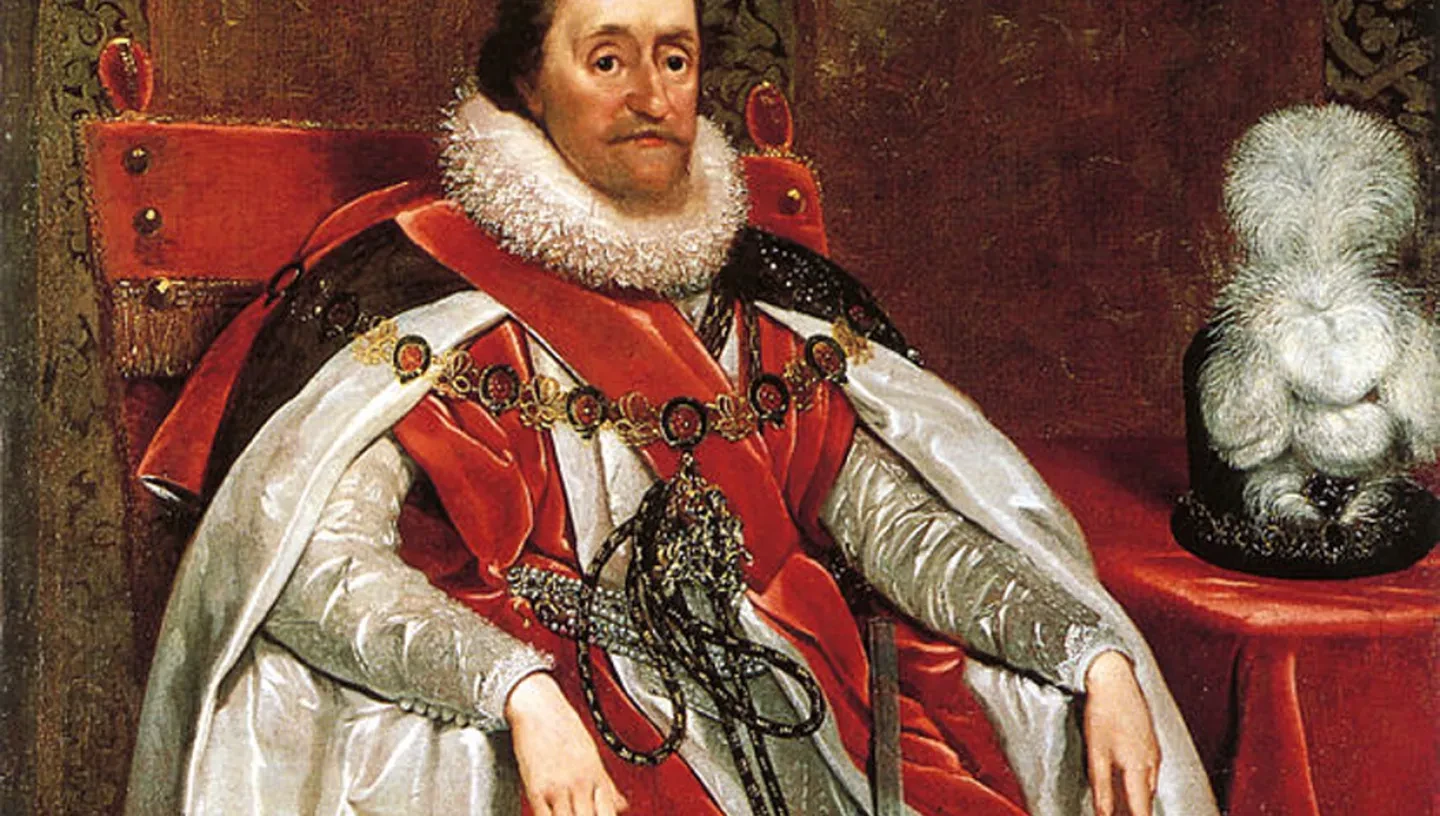
The Stuart navy
There was no full-time navy when James I (VI of Scotland) and Charles I were on the throne. This left the British coastline vulnerable to attack.
When James I (James VI of Scotland) came to the throne of England and Scotland in 1603, he inherited a naval system from his cousin Queen Elizabeth I. There was no full-time ‘standing’ force as we know it today. Instead, in times of national emergency, a few royal ships and many more privately owned merchant vessels combined together to form a loosely knit fighting force. The commanders would be mainly military leaders rather than professional sailors.
Were the early Stuart monarchs involved with the navy?
Neither James I nor his successor Charles I (1625–49) were willing or able to invest in the building up of a stronger navy. Charles was a great admirer of ships and collected many maritime paintings but wasn’t prepared to put money into paying sailors or building ships. His struggles with Parliament, culminating in the English Civil War (1642–51), further weakened Britain's ability to combat the maritime challenges of other nations. In fact, the navy became so weak that it could not even protect the Channel coast from raiding pirates from the Barbary Coast, in North Africa.
Why did Britain need a strong navy?
Overseas trade was vital for wealth and prosperity. Britain had two powerful rivals competing for the limited markets. One was an old enemy, Spain, but a more recent threat came from the Dutch. Their skills as shipbuilders, navigators and traders posed a serious challenge to England's economic security. Consequently, several naval wars were fought against the Dutch in the Stuart era.
What happened to the navy during the Commonwealth?
After the execution of Charles I, the Commonwealth government, led by Oliver Cromwell, realised the urgent need to stop the decline in Britain's navy. Cromwell took strong measures to build up and improve it. He succeeded to some extent, with the help of experienced sea commanders, such as the brilliant Admiral Blake, who led the English fleet to victory in the First Anglo–Dutch War (1652–54).